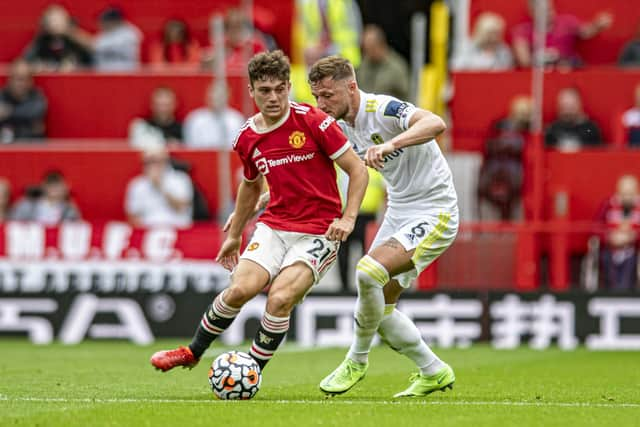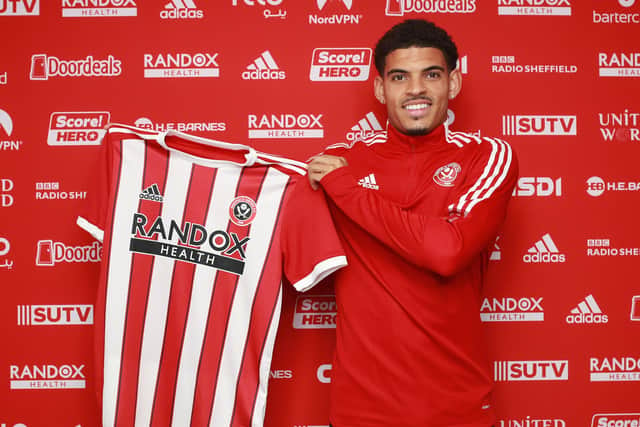Stuart Rayner on Football: Window is firmly closed on chance to break cycle
Premier League spending fell for a second successive year, and was down in all the “Big Five” European leagues except Germany, which only made the crazier deals jump out that much more.
Manchester City broke the British transfer record to sign the country’s first £100m footballer, Jack Grealish, then tried and failed to break it again for Harry Kane.
Advertisement
Hide AdAdvertisement
Hide AdChelsea spent £97.5m on a player who came through their own academy, though in fairness the master sellers covered the cost in outgoings.


Paris Saint-Germain laughed in the face of financial fair play by taking on Lionel Messi’s alleged £960,000-a-week wages, but point-blank refused Real Madrid’s final £172m bid for Kylian Mbappe. They did not sell a single player to offset Messi. Nice trick if you can manage it.
You might remember Madrid president Florentino Perez bleating that his club was “on the edge of ruin” if it was not allowed to join a breakaway European league. Looks like it got over that pretty quickly.
Arsenal spent a net £120m, flexing their Champions League muscles – except this is a club not on the European football gravy train or even the Europa Conference bus replacement service.
Advertisement
Hide AdAdvertisement
Hide AdManchester United, hundreds of millions of pounds in debt, were apparently provoked by their noisy neighbours into paying Cristiano Ronaldo about £480,000 per week. In fairness, they were down to their last 10 forwards at the time.


Meanwhile, Huddersfield Town, Sheffield Wednesday, Doncaster Rovers and Bradford City, like many of their rivals, dealt only in free transfers and loans. Doncaster hit the limits of their budget before the season started and until a deadline-day cash injection to allow them to sign winger Rodrigo Vilca on loan, could not bring anyone in without moving others on, not that they were by any means alone in that. In a buyer’s market, that proved nigh on impossible.
It was one of the few things Doncaster had in common with Barcelona, the self-styled world’s biggest club unable to keep an all-time great prepared to halve his pay to stay because during 10 seasons of European financial fair play regulations they have managed to push their debts up to £1.5bn before anyone thought to apply the brakes.
The Serie A champions, Inter Milan had to sell £177m of talent including their top-scorer Romelu Lukaku, replacing them with £32m-worth of players, when their Chinese owners ran into financial and political difficulties.
Advertisement
Hide AdAdvertisement
Hide AdEven with a parachute payment after two Premier League seasons, topped up by the £24m sale of Aaron Ramsdale, Sheffield United could only deal in loans – and not even as many as their manager claims to have been promised.
In English terms, this is not about the Premier League and the rest; this is about a handful of clubs and the rest. Liverpool could only afford one (almost) modest signing, Newcastle United had to “break their rules” to spread the £25m cost of sole addition Joe Willock in instalments. Everton spent £1.6m in transfer fees , newly-promoted Watford £4.5m.
Somehow football seems to have rejected the idea of a European Super League that would have made continental football totally anti-competitive by exacerbating the gap between the haves and have-nots, and in the space of a few months watched it widen.
Football must break the cycle the ESL was meant to accelerate, where the clubs at the top take all the money, which means they get stronger, which means they win more, which means they take all the money... When things are run that way, it needs incompetent management to make things interesting. God bless you, Arsenal.
Advertisement
Hide AdAdvertisement
Hide AdThe best teams should be rewarded for winning, as should the clubs who play the football most people want to watch and be a part of. It is right to insensitivise them to strive to be better in every aspect. American-style drafts are no good for leagues with relegation, and fans made clear when the ESL collapsed they want relegation.
But more money must go to the also-rans, an important part of English football’s ecosystem, to continue being clubs in their own right, not feeder outfits taking the crumbs falling from the big boys’ bloated squads when they loan out the country’s best young talent on their terms. They need to be able to aspire to improvement too, to have the hope of competing with those with bigger bank balances. After the excesses of this transfer window, that feels further off than ever.
Comment Guidelines
National World encourages reader discussion on our stories. User feedback, insights and back-and-forth exchanges add a rich layer of context to reporting. Please review our Community Guidelines before commenting.